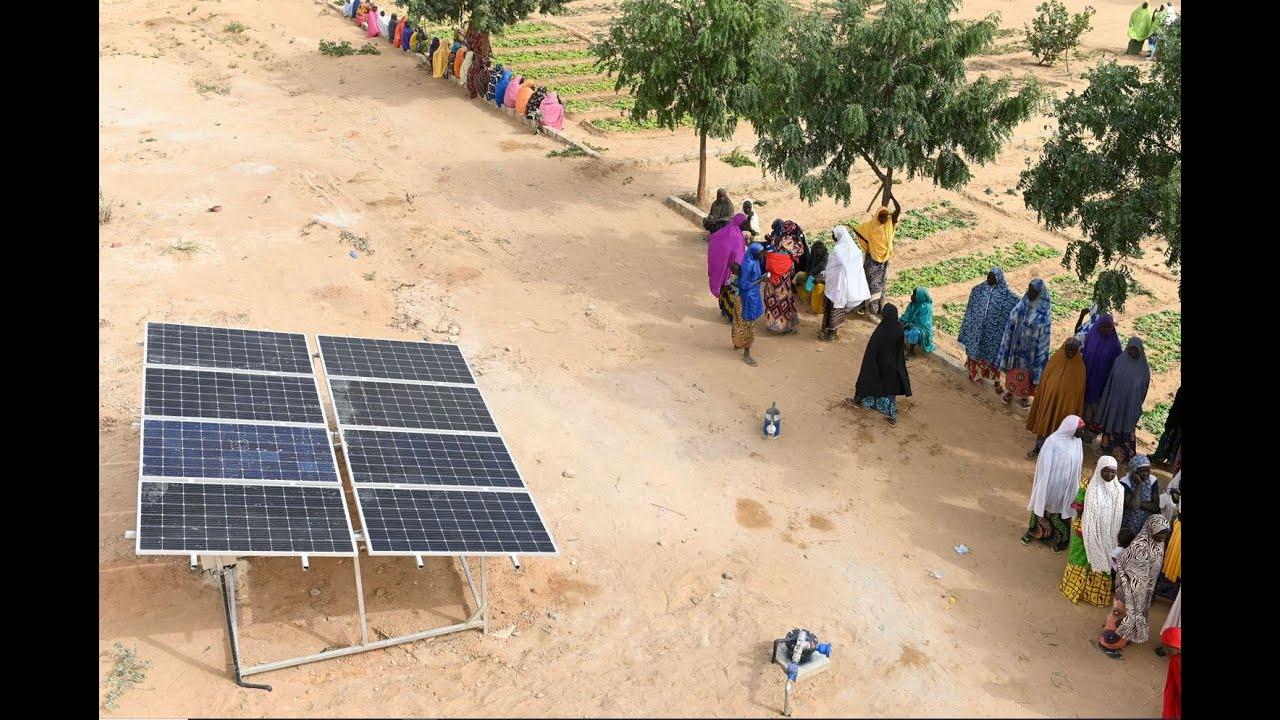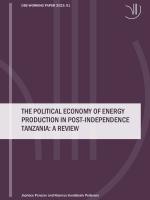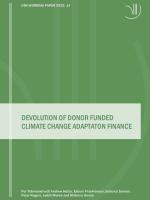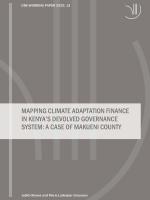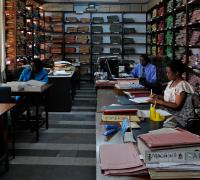Livestreaming
How can finance for climate change adaptation be spent more effectively?
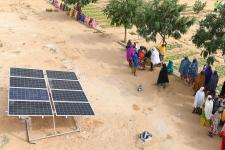
Watch the livestreaming here
This seminar analyses the institutional architecture of how and where finance for climate change adaptation is spent and which route of transfer it follows from national to local levels.
Citizens in the Global South are among the most affected by the increased frequency and severity of climate change-related hazards. Furthermore, they receive inadequate government and donor support for their adaptation efforts. Therefore, it is with good reason that the UN’s Climate Conferences have continued to focus on the inadequacy of financial support for adaptation, and recently also on the process of implementation. Yet, despite the strong global research on climate change adaptation, implementation of adaptation at sub-national levels in the Global South remains under-researched.
The Governing Adaptive Finance for Transformation (GAP) programme examines how (de)centralised modes of governance influence the distribution and use of finance for adaptation during implementation. This seminar takes stock of our findings halfway through the research program.
GAP’s overall hypothesis is that devolving the governance of climate change adaptation produces a less skewed spatial distribution of financial resources, although devolution alone may not alleviate political conflict or produce solutions that are better tailored to local conditions. GAP contributes to the academic literature by establishing the implementation of climate change adaptation as a new arena of political contestation among (sub)national actors.
Esbern Friis-Hansen, Senior researcher at DIIS. He has 35 years of experience as a development researcher in natural resource management and climate change adaptation with long-term involvement in Tanzania, Uganda and Zimbabwe.
Hans Peter Dejgaard, Director and consultant at INKA Consult, Denmark. He has extensive experience with climate change projects at the community, municipal and national levels in Africa, Asia and Latin America. He has undertaken studies of international climate finance for INGOs and drafted Danish MFA’s reporting to OECD, EU and UNFCCC.
Jamal Msami, Director of Strategic Research and Senior Researcher, REPOA, Tanzania. Coordinates REPOA’s research on productive sectors and inclusive development, gender and human development, governance, environment and climate change. He has experience with public service reforms.
Per Jakob Tidemand, Consultant, REPOA, Tanzania. For the last 25 years he has been working as a consultant on local government finance issues in twenty countries across Asia and Africa. He has long-term involvement in Uganda and Tanzania. Under the GAP programme, he is focusing on the institutional aspects of climate change financing.
Beatrice Sumari, PhD student at the University of Dar es Salaam, Institute of Resources Assessment (IRA), Tanzania. She is a trained community engagement professional with eight years of experience working with Tanzanian government institutions and other national and international stakeholders. In GAP, she explores local government capabilities in the management of climate change adaptation finance in Tanzania.
Judith Mulwa, PhD student at the School of Environment and Community Development, Kenyatta University, Kenya.
Millicent Omala, PhD student at the School of Environment and Community Development, Kenyatta University, Kenya. She has ten years’ experience working on adaptation and development in Ghana, Nepal and Kenya.
Programme
10.00-10.15 Introduction, Esbern Friis-Hansen
10.15-10.35 Global flow of finance for climate adaptation, Hans-Peter Dejgaard
10.35-10.55 Devolved climate adaptation finance in Kenya and Tanzania, Per Tidemand
10.55-11.15 Coffee break
11.15-11.35 Effective climate finance coordination? Stakeholder perceptions and political economy, Millicent Omala
11.35-11.55 Central-local Inter-governmental Power Relations: Implications to Climate Change Adaptation Financing at the Local Level, Beatrice Sumari
11.55-12.15 From Exclusion to Inclusion: Emerging Sub-National Climate Adaptation Financing Vehicles in Kenya, Judith Mulwa
12.15-12.30 Political economy of devolved governance of climate adaptation in Tanzania, Jamal Msami
12.15-13.00 Q&A
13.00-13.30 Sandwiches and drinks
The seminar was held and recorded on 8 September 2023, 10.00-13.00 in DIIS Auditorium.
Sign up
DIIS Experts


